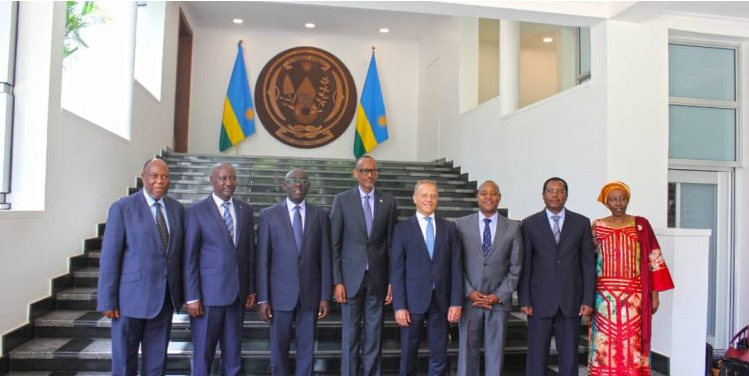
Our Projects are
Transforming African Trade
Quick Contacts
2nd Floor, Fidelity Insurance Centre Waiyaki Way, Westlands

As the East African Community (EAC) Marks 20 years of regional integration, the East African Business Council has organized a high level business and investment summit.
Slated for November 28th and 29th this year, the meeting is intended to discuss wys of making East Africa a leading trade and investment destination and how to increase intra EAC trade.
This year, EAC is celebrating 20 years since its revival, marking the signing of the Treaty for the Establishment of the East African Community which was signed on 30th November 1999.
EAC is one of Africa’s fastest-growing regional blocs that registered an economic growth of 5.7 percent in 2018.
“While we have achieved many milestones, such as the establishment of the Single Customs Territory and One-Stop Border Posts (OSBP), which have eased the free movement of persons and goods and facilitated trade, there are still several challenges to be addressed, including reducing Non-Tariff Barriers (NTBs), protectionist tendencies by Partner States, and delays in harmonization and domestication of EAC-agreed decisions and directives.” A statement from EABC reads in part.
The Business Summit will discuss and address some of the challenges hindering businesses to thrive.
According to Article 7 of the Treaty for the Establishment of the EAC states on people-centered and market-driven cooperation as a principle to govern practical achievements of the objectives of the EAC integration process.
Article 128 emphasizes on strengthening of the Private Sector as a key partner in the EAC integration.
But the question is: How do we make business the top agenda for the Community going forward and how the Private Sector can be in the driving seat of the EAC regional integration process?
“As the voice of the Private Sector in East Africa, we are committed to driving the EAC integration process through our high-level public-private dialogue engagement and platforms,” a statement from EABC read in part adding that the event will also take stock of EAC’s achievements over the last 20 years as a result of EAC integration, look at the challenges of doing business regionally, and come up with future outlook for the region.
As the leading economic forum in the EAC, this Business Summit will bring together leading CEOs, Industry Champions, and regional investors to engage with high-level policy decision-makers, including the EAC Secretary-General, the EAC Council of Ministers and the East African Legislative Assembly.
With the theme of EAC@20: Private Sector-Driven Regional Integration for increased intra-EAC trade and investments, anchored on enhancing the important role of the private sector as a true partner in regional policy and decision-making organs of the EAC for increased trade, investment and industrialization.
The Resolutions of the Business Summit will also be submitted to the EAC Council of Ministers for the delivery of quick wins for the region in a bid to increase intra-EAC trade and investments.
The High Level East African Business and Investment Summit is co-organized in close collaboration with the respective EAC Investment Promotion Agencies and EABC National Focal Points, namely the Federal Chamber of Commerce and Industries Burundi (CFCIB), Kenya Private Sector Alliance (KEPSA), Rwanda Private Sector Federation (PSF), South Sudan Chambers of Commerce Industries and Agriculture (SSCCIA), Tanzania Private Sector Foundation (TPSF) and Private Sector Foundation Uganda (PSFU).
Safal Group, Coca Cola, TCC, Motisun Group, Tanzania Chambers of Commerce Industries and Agriculture (TCCIA), BDI – Federation of German Industries, GIZ – German Development Cooperation, International Trade Centre (ITC) and TradeMark Africa (TMA) are among supporting partners of this upcoming High-Level East African Business and Investment slated for 28th and29th November 2019 in Arusha, Tanzania.
Source: The Exchange
Disclaimer: The views and opinions expressed in this article are those of the authors and do not necessarily reflect the official policy or position of TradeMark Africa.